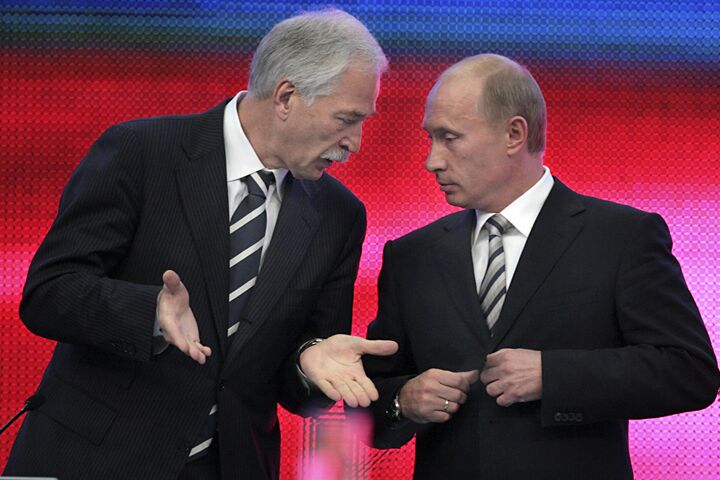
Russia Uniting, Putin-Style
Vladimir Putin’s administration has adopted stricter election rules that will almost certainly eliminate the last pieces of parliamentary opposition to the Russian president. The rules may give the majority party, United Russia, up to 75 percent of the vote in the country’s December 2 parliamentary elections.
Under the new rules, Russians will vote for parties rather than individual candidates. In addition, the Kremlin now requires each party to carry 7 percent of the national vote to gain seats in the Duma, Russia’s legislative body, up from 5 percent. Also, each must prove to the Kremlin that it has 50,000 members, up from 10,000, in order to be considered an official party (International Herald Tribune, October 14).
“This is the first time in post-Soviet history when only the Kremlin decides who can participate and who can’t,” minority party MP Vladimir Ryzhkov said.
Apparently, minority parties have been disbanded even if they meet the new standards. Ryzhkov’s Republican Party was dissolved this year under these pretenses, but Ryzhkov said it easily met the requirements. The Other Russia party has also been disbanded.
The new rules are another stride in Putin’s plan to retain power after his second presidential term expires next year. Under the Russian Constitution, the president is limited to two consecutive terms.
Putin has already gained virtually complete control over Russia’s government. The country’s parliament, which was a more multi-party affair in the mid 1990s, has become Putin’s pawn, according to the Tribune: “[T]he Russian parliament in its early years was a raucous center of power that often challenged the president at the time, Boris Yeltsin. In Putin’s first term, it sometimes retained that role, but Putin has steadily reined it in, and these days it is considered little more than a sidekick to the Kremlin” (ibid.).
The parliament already serves as a virtual rubber stamp for Putin’s administration, even without losing additional opposition seats to United Russia, which is the majority party and controlled by Putin. Putin is also favored by United Russia’s supposed opposition, Just Russia.
Besides passing Putin’s policies with ease, United Russia has marginalized opposition members and even blocked them from speaking in parliament.
“The parliament has been brought down to the level of a servant, serving the ruling bureaucracy,” independent MP Viktor Pokhmelkin said. “And there cannot be any other assessment.” Pokhmelkin is one member of parliament who was prevented by United Russia from delivering speeches.
Putin has taken the time to provide his own assessment, asserting that his moves are intended to ensure a robust multi-party government and that this will simply take time.
His actions indicate otherwise. In October, the president shocked the system when he announced he will top United Russia’s ballot in the upcoming elections. Although he has clearly controlled the party since its inception, he had previously denied direct involvement.
With Putin a member of United Russia, its parliamentary dominance becomes more crucial. With complete control of the parliament, United Russia could afford him leadership of the party, or the position of speaker of the Duma or prime minister.
It could also afford Putin the means to make and change laws, including the Constitution.
Some analysts suspect Putin may settle into the prime ministership and turn the presidency into more of a figurehead position. The prime minister office is not term-limited.
Continue to watch Russia’s government, and particularly Vladimir Putin. His maneuvers are strengthening the world’s largest nation, which the Bible prophesies will be a major player in end-time events.
